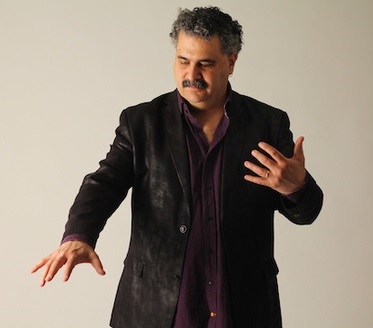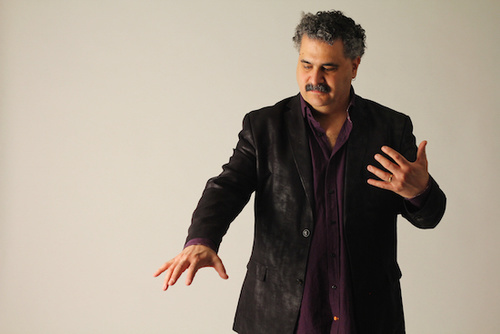About
Composer Marc Mellits is one of the leading American composers of his generation, enjoying hundreds of performances throughout the world every year, making him one of the most performed living composers in the United States. From Carnegie Hall and the Kennedy Center, to prestigious music festivals in Europe and the US, Mellits’ music is a constant mainstay on programs throughout the world. His unique musical style is an eclectic combination of driving rhythms, soaring lyricism, and colorful orchestrations that all combine to communicate directly with the listener. Mellits' music is often described as being visceral, making a deep connection with the audience. “This was music as sensual as it was intelligent; I saw audience members swaying, nodding, making little motions with their hands” (New York Press). He started composing very early, and was writing piano music long before he started formal piano lessons at age 6. He went on to study at the Eastman School of Music, Yale School of Music, Cornell University, and Tanglewood. Mellits often is a miniaturist, composing works that are comprised of short, contrasting movements or sections. His music is eclectic, all-encompassing, colourful, and always has a sense of forward motion.
Mellits' music has been played by major ensembles across the globe and he has been commissioned by groups such as the Kronos Quartet, Orpheus Chamber Orchestra, Royal Concertgebouw Orchestra (Holland), Duo Assad, Bang On A Can All-Stars, Eliot Fisk, Canadian Brass, Nexus Percussion, Debussy Quartet, Real Quiet, New Music Detroit, Four-In-Correspondence (National Symphony Orchestra), Musique En Roue Libre (France), Fiarì Ensemble (Italy), Percussions Claviers de Lyon (France), Third Coast Percussion, Talujon, the Society for New Music, Syracuse Symphony Orchestra, and the Albany Symphony's Dog's Of Desire. Additionally, Mellits’ music has been performed, toured, and/or recorded by members of the Detroit Symphony, Atlanta Symphony, Boston Symphony, Chicago Symphony, Minneapolis Symhony, Brooklyn Philharmonic, eighth blackbird, Chamber Music Society of Lincoln Center, New Millenium Ensemble, Da Capo Chamber Players, and the American Modern Ensemble, among many others.
On film, Mellits has composed numerous scores, including the PBS mini-series “Beyond The Light Switch” which won a 2012 Dupont-Columbia award, the most prestigious award in documentaries. Mellits also directs and plays keyboards in his own unique ensemble, the Mellits Consort. He was awarded the prestigious 2004 Foundation for Contemporary Arts Award. On CD, there are over 50 recorded works of Mellits' music that can be found on Black Box, Endeavour Classics, Cantaloupe, CRI/Emergency Music, Santa Fe New Music, Innova, & Dacia Music. Marc Mellits is an Assistant Professor of music at the University of Illinois at Chicago. He lives in Chicago with his wife and two daughters, and spends significant time in Romania.


